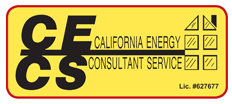As the leaves change and temperatures drop, homeowners prepare for fall. While autumn brings cozy comforts, it’s important to consider your home’s indoor air quality (IAQ). IAQ affects your comfort and health, especially during colder months when you spend more time indoors. Here, we’ll look at five factors that impact IAQ in the fall and tips to improve your home performance.

-
Seasonal Allergens – In the fall, allergens increase, with ragweed pollen being a major contributor to poor IAQ. Mold from fallen leaves can also worsen allergies and respiratory problems. Homeowners should take steps to reduce these allergens indoors. Regularly clean HVAC filters, use air purifiers and keep windows closed on high pollen days to help improve indoor air quality.
-
Decreased Ventilation – As temperatures drop, we often close our homes to stay warm, reducing ventilation and trapping pollutants inside. Chemicals from cleaning products, cooking fumes, and off-gassing from new furniture can build up and affect air quality. Installing energy recovery ventilators (ERVs) or heat recovery ventilators (HRVs) can help bring in fresh air without losing heat.
-
Humidity Levels – Fall can bring changes in humidity that affect your home’s indoor air quality (IAQ). Too much humidity can lead to mold and dust mites, while too little can cause dry skin and respiratory problems. Keeping humidity levels between 30% and 50% is important. Dehumidifiers and humidifiers can help maintain the right moisture levels for a healthier and more comfortable home.
-
Heating Systems – Turning on your heating system for the first time in months can kick up dust and particles that settled over the warmer months. To ensure your system runs efficiently, service it before the season starts together with an energy assessment. This involves replacing filters and scheduling professional maintenance. Well-maintained heating systems work better and improve indoor air quality by reducing pollutants.
-
Home Improvements and Repairs – Fall is a great time for homeowners to start home improvement projects before the colder weather. However, tasks like painting and installing new flooring can release contaminants into your indoor air. To protect your air quality, use low-volatile organic compound (VOC) paints and sealants, and make sure to ventilate your home during and after these projects.
Aside from being an expert HVAC contractor, California Energy Consultant Service also helps homeowners with their window needs as a window replacement contractor. We work with homeowners in Sacramento, Rancho Cordova, Orangevale, CA, and surrounding areas. Call us at (916) 993-5000 or fill out our contact form to learn more.


